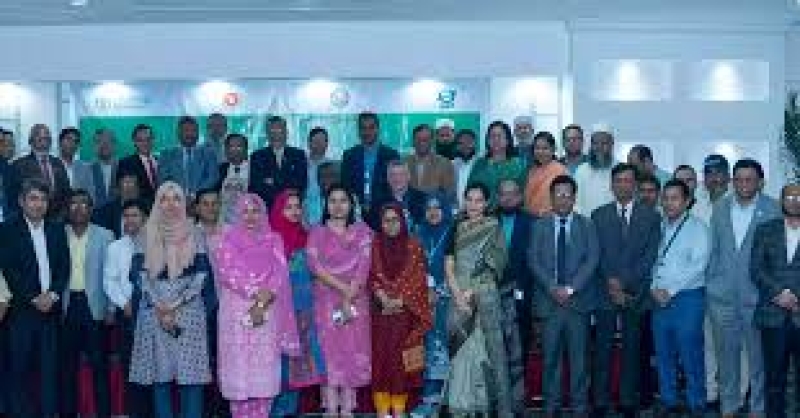- Imported fruit prices surge by up to Tk 100 per kg |
- 35% of air pollution in BD originates from external sources: Experts |
- CPJ denounces Trump administration's action against AP |
- Bangladesh concede 6-wicket defeat to India in ICC Trophy |
FAO Supports BD in Strengthening Fisheries Export and Safety

A validation workshop organized by the Food and Agriculture Organization (FAO) of the United Nations on Thursday aimed to reduce pesticide risks and improve the quality of dried fish for both domestic and export markets. The event focused on finalizing the updated National Residue Control Plan (NRCP) Policy Guidelines 2011 (Revision 2025) and the Pesticide Residue Monitoring Plan (PRMP) Guidelines for dried fish in Bangladesh. It was held at the Pan Pacific Sonargaon Hotel.
The workshop was designed to align Bangladesh’s pesticide management frameworks with evolving European Union (EU) requirements and national regulations governing pesticide residues in the fisheries sector. This initiative is part of the FAO-led Pesticide Risk Reduction in Bangladesh project, funded by the Global Environment Facility (GEF).
Key participants included Dia Sanou, Deputy Representative of FAO Bangladesh, and Shahina Ferdousi, Joint Secretary of the Fisheries Branch at the Ministry of Fisheries & Livestock. The event was chaired by Md. Zia Haider Chowdhury, Additional Director General of the Department of Fisheries.
The validation workshop builds upon a thorough consultative process to identify gaps and areas for improvement in the existing NRCP Policy Guidelines. This effort is part of updating the guidelines and creating the PRMP to ensure alignment with both EU standards and national regulations. The process included comprehensive desk reviews of relevant legislation and regulations, as well as three focus group discussions (FGDs) held in Khulna, Gazipur, and Dhaka with experts, stakeholders, and government officials.
Shahina Ferdousi, Joint Secretary at the Ministry of Fisheries and Livestock, recognized the strong collaboration between the Department of Fisheries (DoF) and FAO in enhancing Bangladesh’s sustainable export capacity and food safety regulations. She emphasized, “FAO has provided essential training to DoF officials on pesticide residue monitoring, reviewed regulations, and improved drying practices for dried fish producers. These efforts are crucial in minimizing pesticide risks and ensuring the quality of dried fish for both domestic and international markets.”
Dia Sanou, Deputy Representative of FAO Bangladesh, praised the country's significant progress in the fish export sector. “Bangladesh is now the third-largest global producer of farmed fish, exporting to over 50 countries, including major markets like the EU, the US, and Japan,” he said. However, he acknowledged the growing challenges posed by chemical contamination in aquaculture products, particularly from banned drugs and chemicals, which have economic repercussions and erode customer trust.
“The updated NRCP Policy Guideline 2011 and the PRMP Guideline for Dry Fish will play a pivotal role in maintaining safety standards in Bangladesh’s fisheries sector, protecting public health, and boosting exports,” he added.
The workshop marked a key milestone in strengthening collaboration among stakeholders within the fisheries sector, highlighting FAO’s commitment to supporting sustainable practices and improving regulatory frameworks. This initiative aims to ensure public health safety and enhance trade standards for seafood products.
The recommendations stemming from the workshop aligned with the FAO’s guiding principles, focusing on the "Four Betters"—Better Production, Better Nutrition, Better Environment, and a Better Life. These pillars are essential for fostering sustainable export practices and food safety regulations in fisheries and aquaculture.

